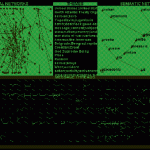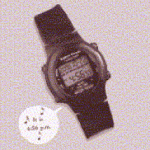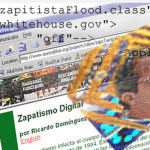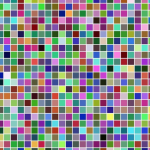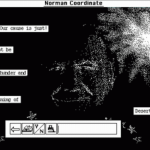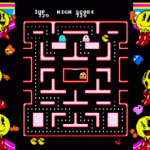2005
1999 e-literature award winner John Cayley writes about Saul Bass of classic film title fame. A precursor to language arts innovators Jenny Holzer, Richard Kostelanetz, and Cayley himself, Bass may now be recognized as a poet in his own 'write,' important for a new generation of designwriters creating "graphic bodies of language," moving words and signifying images, in digital environments.
Scott Rettberg, responding to "The Pixel/The Line" (section 4 of First Person) wonders whether electronic writing isn't evolving into a subspecies of electronic art, one that uses words as material, 'just as sculptors use clay.'
Now that the First Person essay collection is complete and the case has been made for computer games as a form of narrative, Brian Kim Stefans asks the fundamental questions - concerning what can be read as literature, and what really cannot.
Jill Walker's encounter with a participatory, and vaguely sinister, online narrative.
Warren Sack uses The Conversation Map, a "graphical interface" that analyzes newsgroups and listservs, to analyze the possibilities of discourse analysis itself.
The subtitle - "Using Voice Chips and Speech Recognition Chips to Explore Structures of Participation in Sociotechnical Scripts" - tells the story, partly. But there's more in store.
Carolyn Guertin surveys the politics of Hacktivist women.
Is there such a thing as womens' writng? Or, for that matter, womens' media? Elisabeth Joyce moves through the work of Annie Abrahams and writes against restrictive domestications of electronic media.
2004
John Cayley dadas up the digital, revealing similarities of type across two normally separate, unequal categories: image and text. "Neither lines nor pixels but letters," finally, unite.
Camille Utterback exposits "embodied interaction with symbolic spaces" – the body and language of digital art.
The parallels (and oppositions) between hypertext and AI are brought out in section five.
J. Yellowlees Douglas and Andrew Hargadon on the affective side of hypertexts via "schemas, scripts, and the fifth business."
Dave Ciccoricco returns to Stuart Moulthrop, considers Operation Enduring Freedom (2003) in light of Operation Desert Storm (1991), and consults the annals of World War II for a likely source of "Victory Garden," the title of Moulthrop's 1991 network fiction on the Gulf War.
Matthew Kirschenbaum rethinks the final section of First Person in light of "five basic strategies for furthering the history of reading."
Henry Jenkins uses narrative space to distinguish between different tale-ends.
Jesper Juul maps the "flow" state of gameplay onto innerspace and elsewhere.
Applying games to games, Celia Pearce uses The Sims to showcase six keywords.
Eric Zimmerman whips "four naughty concepts" into disciplinary shape.
Slavoj Žižek addresses the situation of post-9/11 global politics - and his own, controversial, theories of the political - in this interview with Eric Dean Rasmussen.
Jane McGonigal goes mobile with a "transformational agenda" shift for Cyberdrama.


